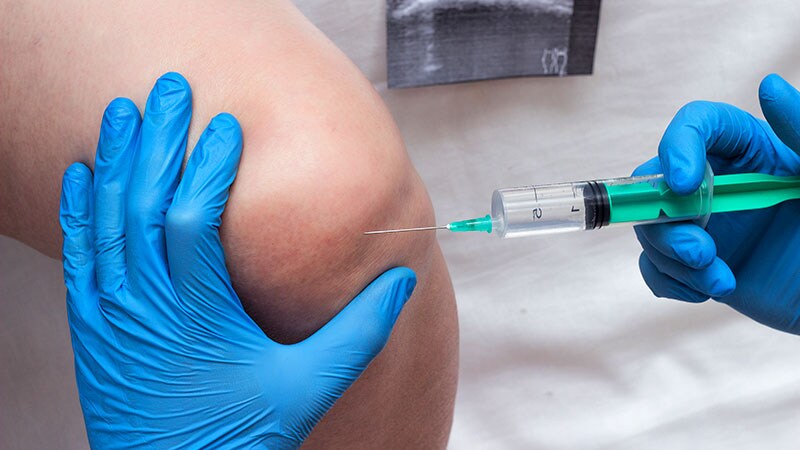Corticosteroid Injections and Blood Sugar Levels Study
Alapfogalmak
Corticosteroid injections have minimal impact on blood sugar levels for most individuals.
Kivonat
The study examines the impact of Intra-articular corticosteroid (IACS) injections on blood glucose levels in individuals with diabetes.
- Topline:
- IACS injections pose minimal risk of accelerating diabetes.
- Methodology:
- Study on 1169 adults receiving IACS injections.
- Analyzed A1C levels before and after injections.
- Takeaway:
- 16% experienced higher A1C levels post-injection.
- A1C levels rose by 1.2% in the greater-than-expected group.
- In Practice:
- Clinicians should counsel patients with suboptimally controlled diabetes.
- Source:
- Led by Terin T. Sytsma, MD, of Mayo Clinic.
- Limitations:
- Retrospective study, limited population diversity.
- Disclosures:
- Funded by Mayo Clinic and the National Center for Advancing Translational Sciences.
Összefoglaló testreszabása
Átírás mesterséges intelligenciával
Hivatkozások generálása
Forrás fordítása
Egy másik nyelvre
Gondolattérkép létrehozása
a forrásanyagból
Forrás megtekintése
www.medscape.com
Corticosteroid Injections Don’t Move Blood Sugar for Most
Statisztikák
Almost half of Americans with diabetes have arthritis.
A1C levels rose by an average of 1.2% in the greater-than-expected group.
One patient had severe hyperglycemia linked to the injection.
Idézetek
"Although most patients do not experience an increase in A1C after IACS, clinicians should counsel patients with suboptimally controlled diabetes about risks of further hyperglycemia after IACS administration." - Researchers
Főbb Kivonatok
by Brittany : www.medscape.com 01-23-2024
https://www.medscape.com/viewarticle/corticosteroid-injections-dont-move-blood-sugar-most-2024a10001p5
Mélyebb kérdések
How can the findings of this study impact the treatment of individuals with diabetes and arthritis?
The findings of this study can significantly impact the treatment of individuals with diabetes and arthritis by providing valuable insights into the effects of intra-articular corticosteroid (IACS) injections on glycemic control. Clinicians can use this information to better counsel patients with suboptimally controlled diabetes about the risks of potential hyperglycemia following IACS administration. Understanding that nearly 16% of individuals may experience a greater-than-expected increase in A1C levels after receiving an injection can help healthcare providers tailor their treatment plans and monitoring strategies for these patients. By being aware of the potential impact of IACS injections on blood glucose levels, healthcare professionals can optimize the management of diabetes and arthritis in a more personalized manner.
What potential biases or limitations could affect the results of this study?
Several potential biases and limitations could affect the results of this study. Firstly, the retrospective nature of the study limits the ability to establish causation between IACS injections and changes in A1C levels definitively. The study's population being residents from one county in Minnesota may introduce selection bias and limit the generalizability of the findings to more diverse populations. Additionally, the lack of information on specific details of the injections, such as location and total dose, could impact the accuracy and completeness of the data analysis. The absence of a control group also limits the ability to compare outcomes and draw more robust conclusions. These biases and limitations should be considered when interpreting the results of the study.
How can personalized medicine be integrated into the management of diabetes and arthritis based on these findings?
Based on the findings of this study, personalized medicine can be integrated into the management of diabetes and arthritis by tailoring treatment approaches to individual patients' characteristics and responses to IACS injections. Healthcare providers can use the knowledge that individuals with a baseline A1C level above 8% are more likely to experience a greater-than-expected increase in A1C after an injection to identify high-risk patients and provide them with more intensive monitoring and follow-up care. By considering each patient's unique risk factors and response to treatment, clinicians can develop personalized care plans that optimize glycemic control while effectively managing arthritis symptoms. This personalized approach can lead to better outcomes and improved quality of life for individuals with diabetes and arthritis.
0
